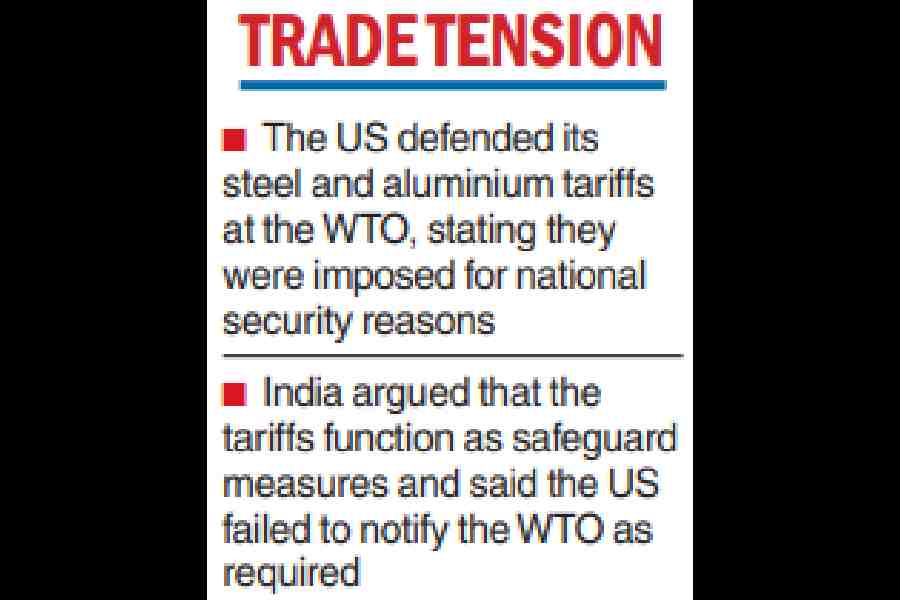The US has informed the World Trade Organisation (WTO) that its decision to impose tariffs on steel and aluminium was based on national security considerations and not safeguard measures.
This clarification came in response to India’s request for consultations under the WTO’s Agreement on Safeguards, submitted on April 11.
India has argued that the US tariffs, despite being described as security measures, functionally act as safeguard measures. Furthermore, India stated that the US failed to notify the WTO’s Committee on Safeguards, as required under the Agreement on Safeguards.

In its response, the US maintained that the tariffs were imposed under Section 232 of the Trade Expansion Act, which allows actions based on national security grounds. The US asserted that the measures were implemented to adjust imports that pose a threat to its national security and are protected under the security exceptions of the General Agreement on Tariffs and Trade (GATT) 1994.
The communication emphasised that the tariffs were not imposed under the Trade Act of 1974, which governs safeguard actions. Therefore, the US argued, there is no legal basis for India’s consultations under the Safeguards Agreement.
Paper concern
The Indian Paper Manufacturers Association (IPMA) has urged the government to curb the rising influx of cheap and inferior-grade paper imports.
It called for a ban on stocklot material, issuance of Quality Control Orders, and strict monitoring through the proposed Inter-Ministerial Import Monitoring Group.










